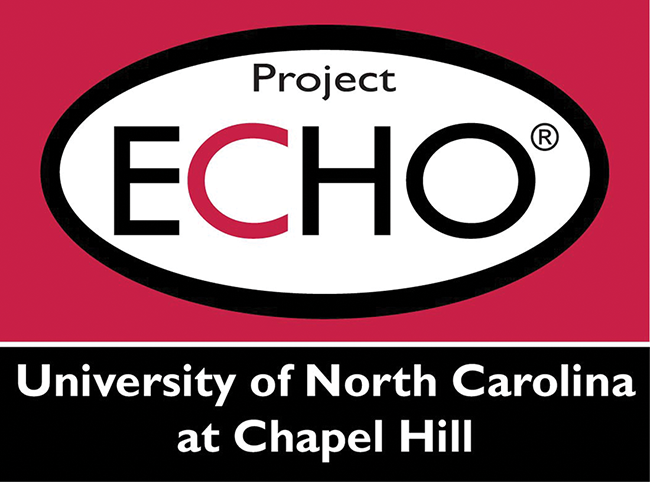UNC Project ECHO
to combat the opioid
epidemic in North
Carolina.
A state in
need of change
Communities across our state are witnessing the devastating impacts of opioid use disorder, and the number of fatal overdoses continues to rise dramatically. Safe and effective medication for office-based treatment for opioid dependence is available, yet many people struggling with addiction are unable to access treatment. We are determined to change that.

UNC ECHO
Project
The UNC ECHO for MAT project is a research initiative to improve the health of North Carolinians by identifying and overcoming barriers to medical providers incorporating evidence-based treatment for opioid use disorder into their practice. We partner with diverse groups of primary and specialty care practices to help them build the internal expertise and capacity to provide office-based medication assisted treatment (MAT) for opioid use disorder. Providers receive one-on-one mentoring, free DATA 2000 waiver training and earn free CME credits by participating in our web-based clinics. Our practice coaches work with your administrative and clinical staff to develop an individualized plan to incorporate MAT into your practice. Because patients with opioid use disorder benefit from behavioral health interventions, we encourage collaboration between MAT prescribers and behavioral health treatment services available at the community level. We will assist you in creating a network to refer and link patients, resulting in greater patient access to resources and better patient care. We are committed to providing you with the support you need to make a difference in the fight against the opioid epidemic in your community.
The ECHO Model

Treatment works
Patients receiving medications as part of their opioid addiction treatment are 75% less likely to die because of their addiction than those not receiving medications. Integrating opioid addiction treatment into your practice is one way you can personally make a tremendous impact on our state’s opioid epidemic.

